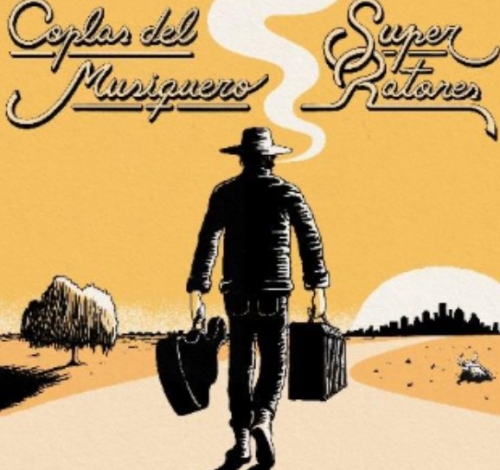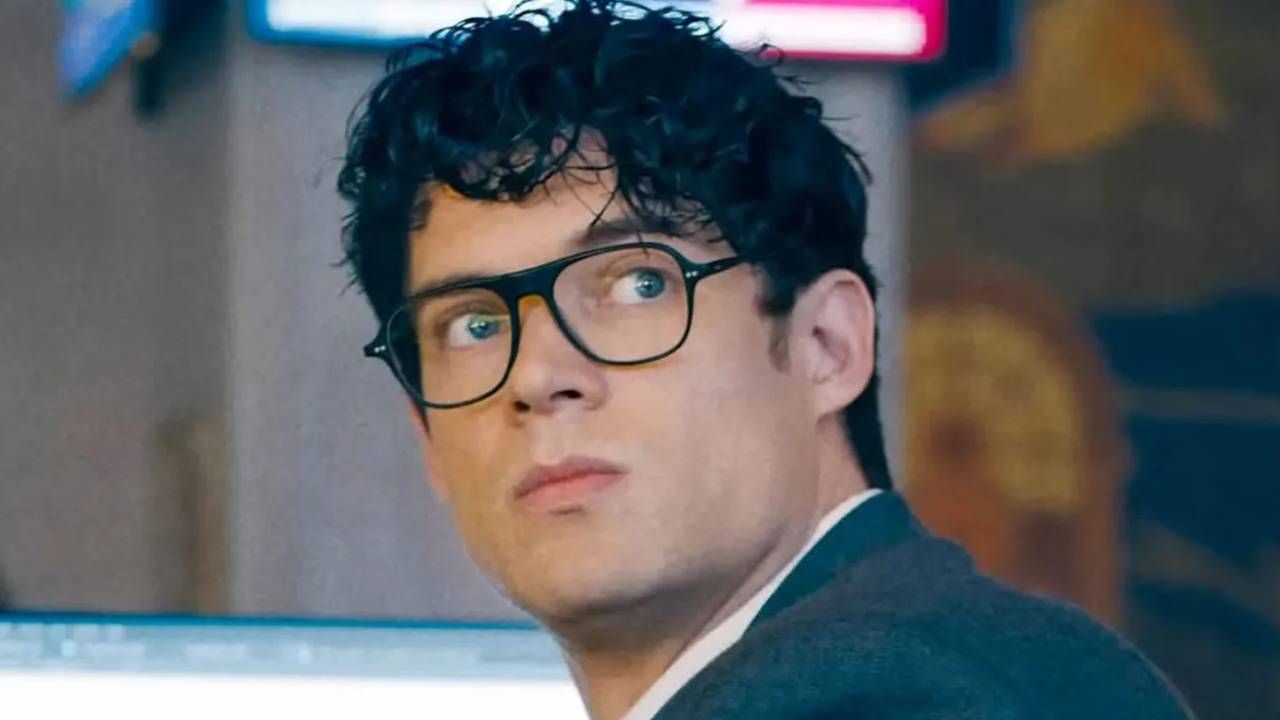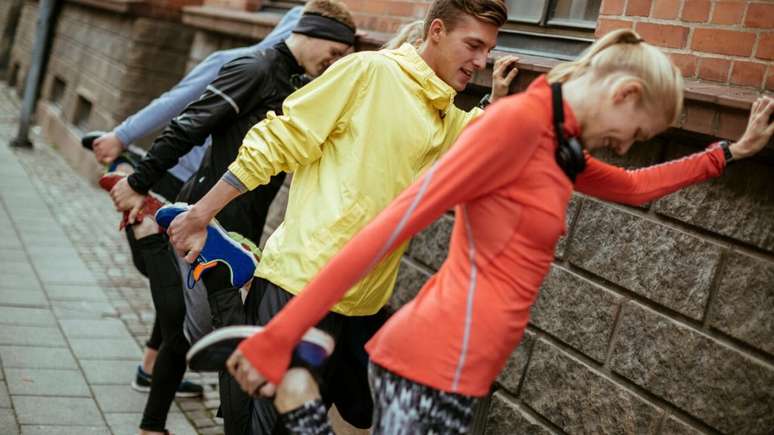Meeting with Boris Lojkine
After Hope in 2015 and Camilla in 2019, two widely critically acclaimed and award-winning films, Boris Lojkine sets his camera in Paris to tell Souleymane’s story. There is a strong continuity between these three films, that of lives seen as journeys, journeys that he recounts through portraits. Thus, in Boris Lojkine’s cinema, there is a modern anthropology, the analysis through concrete life of the relationship with the notion of “the foreigner“, to the notion of “territory“. Who we are, moment ea the place Where are we?
Before becoming a director, Boris Lojkine was briefly a philosophy professor at university. But there’s nothing professor in his cinema there is nothing overbearing and nothing overtly didactic. And considering that cinema is very often a privilege of developed societies, his translates absolutely nothing. After all, he says he no longer recognizes this life in which he obtained a doctorate and debated philosophical concepts and today he wonders who this person was who formulated things in this way…
However, we will not remove from our heads the idea that what he, at a moment in his life, conceived as an impossibility of discourse on the present and its crises, he resolved and then overcame with a moving aesthetic approach. Through cinema, where like no other he has abolished the boundary between the documentary and fiction genres, through the exceptional visual and sound sensations of a thriller with phenomenal immersiveness, he narrates with Souleymane’s story a reality as banal as it is extraordinary, brought forward Abou Sangarenon-professional actor whose performance, awarded at the 2024 Cannes Film Festival in the Un certain Regard section, is already marking the history of French cinema.
What was the starting point Souleymane’s story ?
I have been interested in migratory issues for some time, but more particularly in migratory journeys, travel, people. It seems important to me to tell these stories, these people, that no one tells. There are lives told a thousand times and others never, but they are fascinating.
For a filmmaker, it’s great to be able to tell the story of someone who survives. Telling the story of someone who survives is much more interesting than telling the story of someone who is fine. It’s obvious to me that these are rich stories for cinema to tell.
Why focus specifically on delivery partners?
I’ve been thinking about the idea of making a film about the history of migrants for a while, as I did in Hopebut in a different way. At the time of the confinement, when the streets of Paris emptied, we only saw the delivery boys. I found it fascinating to tell the stories of these workers, who are at the crossroads of many questions. The question of migration, the question of “uberized” work, and it is a promise of brilliant cinema.

The bicycle messenger through the streets of Paris is the promise of a film that will move quickly. A fast-paced, very urban film, where we will move from one environment and setting to another. It’s exciting, we are in motion, and when there is movement, there is life. Immediately after giving birth I immediately convinced my producer to do it and I went scouting on the streets of Paris and met the delivery people.
What was your method for turning this story and its documentary material into a pure thriller?
The documentary material was collected quite quickly, in half a month it was finished. Then there were two years of writing. What movie am I making? How do I tell it and how do I tie it together so that it is a tense film from start to finish and takes the form of a thriller?
I wanted to make a thriller without integrating any genre figures. There’s no mafia, no bandits, no weapons… Proving that you can create a tense thriller without any of that. No robbery, no police chase, no shootout, you can make a thriller without that and I find that super exciting for a screenwriter.
Souleymane’s story it is a film that in reality has both legs but which must last 48 hours, with a countdown, so it is a 100% social film, but not at all a social commentary, and a 100% thriller.
How did you shoot the bicycle sequences and all these action scenes which, despite being a fictional film, we know were captured “for real”?
Boris Lojkine : We work with a simple principle, that is, we will insert the imaginary device into real life and not block anything. We will not block traffic, we will not block people passing on the street, we will at least privatize the restaurants to make the city live. This is how the city contributes so much to the energy of the film. And almost systematically we settled in the worst places: the noisiest and messiest places, Porte Saint-Denis, Barbès, Jaurès, where things circulate in all directions.
Often in cinema we will have the character shoot in places like this, but then we will put the game scenes aside, in preserved places. We did the opposite Souleymane’s storydeciding to place the game’s scenes in the center of the cauldron, where it boils. This is what gives this very energetic and urban style.
The cast of Souleymane’s story it is made up of 99% non-professional actors. Why did you make this choice and what is your direction with them?
Boris Lozhkin : I love working with non-professionals. I love it. Because it’s working with people who have something precious. It’s kind of the opposite of an actor, we often have the idea that an actor is someone who is a blank slate… Well, it’s a little wrong to say that, it’s also very wrong, I’m about to be killed (laugh)! The layman’s idea is to find someone close to the role and in whom we have glimpsed something valuable. All the work is getting it to the shoot without damaging it. And to have as a result not something of the order of the game, but of what it really is.
To make it profitable, to get the most out of it, the scenario must then adapt. We did a lot of rehearsals with the cast, rehearsing almost all the scenes from the film. It’s a way to improve the actors and for me to know how the scenes in the script work with them. Not to impose the scenes on them as I wrote them, but to understand how it will work with their gestures, their words, their ways of behaving, and to be honest towards them.
If I wrote a scene in my corner where there are Ivorians and Guineans sleeping with each other, it would be bad. I found this scene in particular with them, with a lot of improvisation. And in the end I return to the scenario with everything we have built together. In this way, I am at home in this scenario. This is crucial for working with non-professionals.
Souleymane’s storyIt’s also an extraordinary performance by Abou Sangare. How did the casting go?
Boris Lojkine : He’s someone in whom we detected something cinematic. It’s difficult to put it into words. I don’t know exactly what quality it is. We met him after two and a half months of casting. We had already seen maybe 200 people. When we met him, what convinced me was during an improvisation in which silence played. And it was his silence that convinced me. He’s not one to speak easily, he’s not a talker at all. Non-professionals often improvise easily, have ease, will play easily. He is a reserved person, who does not have an easy relationship with French and the language in general, who sometimes stumbles over words. Not really the right client profile for a wild casting…

But here he had to play a simple situation, in which he received a negative response from the prefecture for his documents. He’s with a friend who tells him “come on, let’s go out so you can clear your head”, and he doesn’t want anything, he doesn’t answer. There was power in his silence. We worked before filming, it wasn’t all easy but, as soon as we started filming, it was clear that he always looked good in front of the camera. Print the camera. We can’t explain it. It is a charisma, even an inner flaw, there are many things happening on his face.
Why and when did you decide not to include music Souleymane’s story ?
Boris Lojkine : I knew it from the beginning, and I repeated it over and over, right up until editing. It is a form of aesthetic affirmation, radicality and purity of the film. It’s a simple film. Simple in writing, simple in filming, editing and sound editing. No frills, a straight line. I hate when music comes as some sort of crutch for weak scenes, to reinforce empty moments. By removing the music, and ultimately not including any extradiegetic music, we will make the film’s sound material its own music. It paves the way for richer work, as we have more space to do it!
If we play music continuously, it will take up all the space and make sound editing imperceptible. Without music, the focus is on the sound and there, clearly, the sound material is not illustrative, it is not there to complete a setting, but to create sensations and participate in the immersive aspect of the film. Which is the fundamental intention of the film. You meet the delivery boys but you never meet them: you spend 1h30 with Souleymane on his bicycle.
For the final sequence of the film, you give the role of the OFPRA agent to Nina Meurisse. What is your relationship with her?
Boris Lozhkin : Nina is my accomplice. We know each other very well now that we’re done Camilla. Which hadn’t been easy from the beginning, it had been complicated between us. But we’re past all that and now there’s one easy thing. It was important to me to bring someone I trust completely into this scene. I know I can count on Nina’s generosity. She will come, she will be perfect in the role, but I can also ask her not to do anything and she won’t take it badly. She will be there, not to do her little tour, but above all to help Sangare get to the end of this scene which for him is extraordinary. Extremely long, extremely emotional, it’s a monstrous challenge. For this I needed an ally on set. And so with Nina.
Source: Cine Serie
Ray Ortiz is a journalist at Gossipify, known for his coverage of trending news and current events. He is committed to providing readers with accurate and unbiased reporting, and is respected for his ability to keep readers informed on the latest news and issues.








